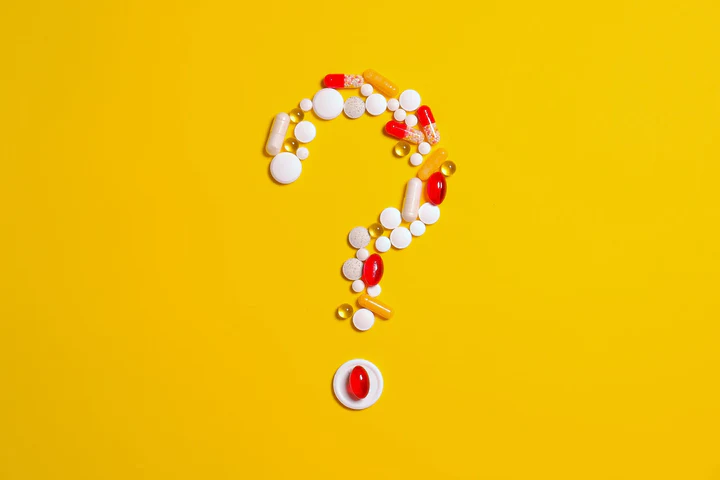The vitamin industry is growing quickly and there are no breaks in sight. It can be overwhelming trying to make a decision. Not about which vitamin to take, but in which form. There are liquids, capsules, soft gels, chewable tablets, gummies and tablets. Do you choose based on price, brand or preference? There are so many questions, but in the end, all you want to ensure is that you’re making the right choice for your health; am I right? When considering the best option for your daily supplements, the debate between capsules vs gummies vs pills vitamins arises.
In this article, we will discuss and compare the many dosage forms so you can be better educated when choosing what’s best for you. Before we begin, let’s go over briefly, each type of dosage form and their main qualities.
Capsules and Time-Released Capsules
Capsules have a plastic type feel to them, come in an array of colors and are made from animal or vegetable sources. Sizes range from very small to uncomfortably big. The smaller the capsule is usually increases your daily intake, which can be a deal breaker for some. The main reason for smaller pills is that the active ingredient may be better absorbed in smaller amounts over the course of the day vs all at one time. Time release capsules have a harder shell and are designed to bypass stomach acid so its ingredients can be released further down into the intestines. An example of this would be melatonin and even some probiotic formulas.
Tablets and Chewable Tablets
Tablets can hold much more ingredients than a capsule, as there is no “shell” controlling its input. Because of this, tablets are better suited for “one a day” consumption. The downside is that many more chemical ingredients must be added to give the tablet its form and stable structure.
An uncoated tablet has a pretty rough texture and can be difficult to swallow for some. Coated tablets are usually smaller in size and come in a variety of colors, smooth on the throat and much easier to swallow. Chewable tablets come in a range of fruity flavours like chewable vitamin C and are meant to accommodate those who cannot swallow pills. Their input amount of medicinal ingredients is just as good as a regular tablet but some chewable tablets use artificial flavouring and sugars, which can be a turn off for those looking for a cleaner alternative.
Liquids and Soft gels
Liquid vitamins are easy to take and some say are the most absorbable form. Although there is not enough scientific evidence to prove this, the obvious answer would be that liquid doesn’t need to break down like a capsule or tablet would; therefore, is the easiest to absorb. There are some things to argue there, which we will discuss later in the article.
The downside to liquid vitamins is that they are usually more expensive and do not last as long as their capsule counterparts. Soft gels contain liquid suspensions and are great for masking odor or a bad taste. They break down well in the digestive tract and provide protection from oxygen susceptible ingredients. Soft gels are animal based and it’s very rare to find one that is vegan derived, although many more are slowly emerging to the market.
Gummies
These are by far the tastiest of vitamins, but carry the least amount of medicinal ingredients per dose. Great for those who cannot swallow pills or may have weak teeth. Vitamin gummies for kids and our chewable vitamin C supplement are fun, tasty and easy for parents to administer with no kick back from picky children. The texture and flavour are great but there are obvious signs of sugar that parents should be aware of, not to treat gummy vitamins like candy, but as medicine that should be given in the recommended dosage.
Which One is Better?
As you can see, all dosage forms have their pros and cons, so how do you choose? Since we all have different needs, here are a few things to consider when choosing what’s best for you.
Absorption Rate & Bioavailability
For digestive issues like indigestion or IBS, opt for forms with minimal digestive burden, such as tablets or capsules. This would include liquids and chewable tablets or chewable gummy form. That said, liquid vitamins aren’t necessarily more bioavailable solely because of their liquid form. Vitamin C enhances iron absorption, so if you do not have sufficient amounts of vitamin C in the body, a liquid iron supplement will not absorb any better than an iron capsule. All vitamins have an absorption counterpart, so always read the label and ask questions.
Daily Dosage
Taking 3 capsules 3 times daily may not suit a busy, active lifestyle. Convenient vitamin tablets or capsules, often in “one a day” dosages, suit busy or forgetful individuals.
Taste
Gummies are the most enjoyable of all vitamin forms. They taste great, the texture is soft and chewy and its convenient for all ages, including adults. Due to this, individuals are more likely to take gummies over pills on a regular basis. Consistency is key when maintaining optimal health so this factor is very important. Also, gummies don’t require water before administering and are easy to mask as candies from prying eyes.
All in all, there are so many dosage forms to choose from. They key to choosing the right one for you, is understanding your digestion, preference and lifestyle. The choice between vitamin tablets and gummies, or gummies and pill vitamins, depends on individual preference; the decision is yours. Vitamins fill nutrient gaps that one may not have acquired during the day, providing a beneficial solution. Eat well, drink lots of water, take your vitamins and stay positive.
Also read our blog on Binaural Beats: A Meditation Shortcut












